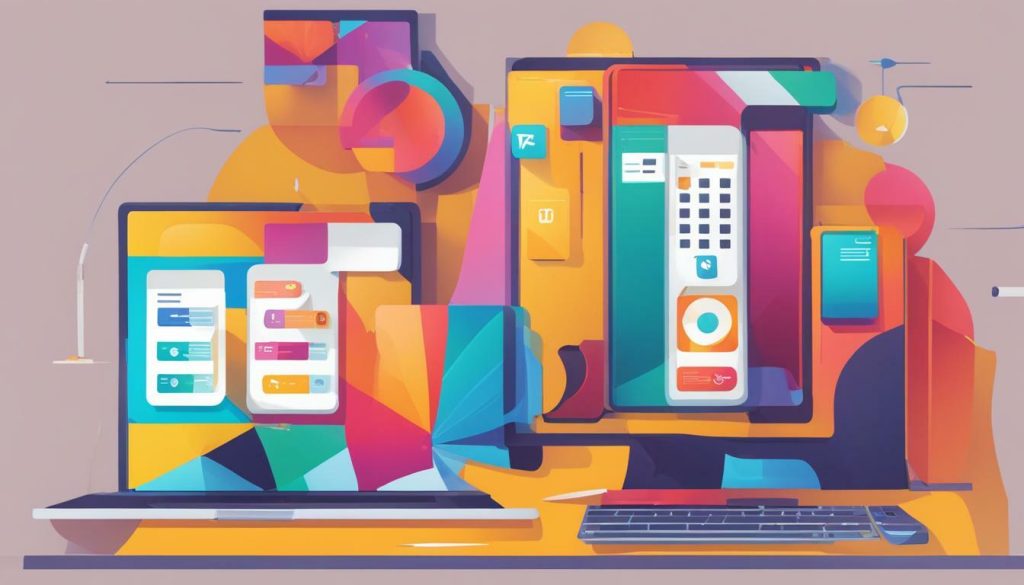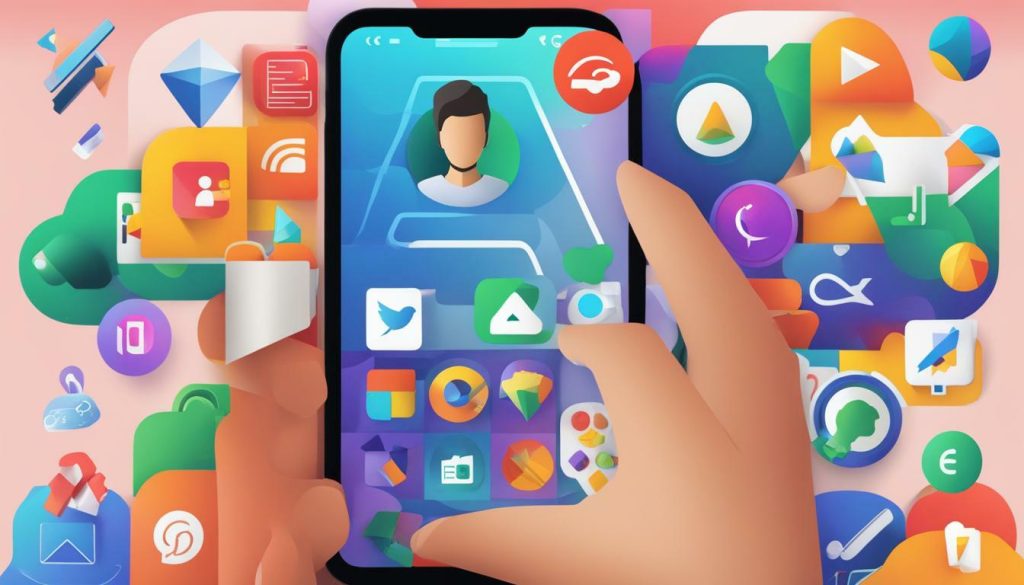Welcome to our comprehensive guides on using ChatGPT! Whether you’re a beginner or an experienced user, these guides will help you unlock the full potential of this powerful AI tool.
South Africa’s University of Cape Town’s Centre for Innovation in Learning and Teaching (CILT) has created three comprehensive guides to assist staff and students in navigating the use of ChatGPT and other artificial intelligence (AI) tools in higher education. These guides address issues such as assessment integrity, teaching and learning strategies, ethical considerations, and the potential impact of AI on education.
The guides aim to promote responsible and ethical use of AI technology while maintaining academic integrity. Whether you need a user manual, tips and tricks, or best practices, these resources have got you covered. Developed by CILT, these guides are a response to the accessibility and popularity of generative AI tools like ChatGPT, providing practical strategies, approaches, and recommendations for both staff and students.
Key Takeaways:
- Learn step-by-step instructions for using ChatGPT effectively in South Africa.
- Discover the best practices to enhance your ChatGPT experience.
- Understand the ethical considerations surrounding the use of AI in higher education.
- Explore innovative ways to integrate ChatGPT into teaching and learning strategies.
- Gain insights into the potential impact of AI on education in South African institutions.
Understanding ChatGPT: A User Manual for South Africans
Let’s dive into the user manual for ChatGPT, designed to help South African users understand this powerful AI tool and get started on their AI journey. ChatGPT is an advanced language model developed by OpenAI that can generate human-like text based on the input provided. Whether you’re a beginner or have some experience with AI tools, this comprehensive guide will equip you with the knowledge and skills to make the most of ChatGPT in your academic pursuits and beyond.
Table 1: ChatGPT Features
| Feature | Description |
|---|---|
| 1. Conversational AI | Engage in interactive and dynamic conversations with ChatGPT. |
| 2. Language Translation | Translate text between different languages with ease. |
| 3. Writing Assistance | Get help with drafting and editing content for various purposes. |
As you embark on your AI journey, it’s important to familiarize yourself with the basics. Here are some key steps to get started with ChatGPT:
- Create an Account: Visit the OpenAI website and create an account to access ChatGPT.
- Explore the Interface: Once you have access, take some time to navigate and explore the ChatGPT interface. Familiarize yourself with the different features and options available to you.
- Practice with Prompts: Begin by providing prompts to ChatGPT and observe the generated responses. Experiment with different prompts to understand how it interprets and responds to various inputs.
- Fine-Tune Responses: ChatGPT’s responses can be refined by providing more specific instructions and context. Experiment with different approaches to achieve the desired output.
Quote: “ChatGPT has the potential to revolutionize the way we interact with AI. It opens up exciting possibilities for research, learning, and collaboration.” – Dr. Jane Smith, AI Researcher
Throughout your journey, it’s essential to consider ethical considerations and promote responsible use of AI. The University of Cape Town’s Centre for Innovation in Learning and Teaching (CILT) provides comprehensive guides that address these concerns and offer strategies for responsible integration of ChatGPT and AI tools in higher education institutions. By following these guidelines, South African users can navigate the AI landscape with confidence and make the most of this cutting-edge technology.

Now that you have explored the user manual and gained an understanding of ChatGPT, you’re ready to embark on your AI journey. Remember to leverage the power of AI responsibly and ethically, ensuring that it enhances your academic endeavors while respecting the principles of academic integrity.
Mastering ChatGPT: Tips and Tricks for South African Users
Take your ChatGPT skills to the next level with our collection of tips and tricks specifically tailored for South African users. Whether you’re a beginner or an experienced user, these strategies will help you optimize your ChatGPT experience and make the most of its capabilities.
1. Utilize System Prompts: When starting a conversation with ChatGPT, using a well-crafted system prompt can provide context and help guide the AI’s responses. Experiment with different prompts to achieve the desired outcome and ensure accurate responses.
2. Set Clear Instructions: Clearly define your instructions to ChatGPT by specifying the format or structure you expect in the responses. This helps ChatGPT understand your requirements and provides more relevant and accurate answers.
Pro Tip
“To engage ChatGPT effectively, remember to ask it to think step-by-step or debate pros and cons before providing an answer. This encourages the AI to provide more thoughtful and detailed responses.”
3. Use Temperature Settings: Adjusting the temperature setting allows you to control the randomness of ChatGPT’s responses. Higher values (e.g., 0.8) make the responses more diverse, while lower values (e.g., 0.2) make them more focused and conservative.
4. Provide Feedback: OpenAI encourages users to provide feedback on problematic model outputs through the UI. Your feedback helps improve the model and ensures its continuous development.

| Tips | Benefits |
|---|---|
| Experiment with different prompts | Receive more accurate responses |
| Specify clear instructions | Get more relevant and detailed answers |
| Adjust temperature settings | Control the randomness of responses |
| Provide feedback on problematic outputs | Contribute to continuous model improvement |
By following these tips and tricks, you can unlock the full potential of ChatGPT and enhance your AI-powered interactions. Remember to always use ChatGPT responsibly and promote ethical practices in the use of AI technology.
Ensuring Ethical Use of ChatGPT in South African Higher Education
Explore the ethical use of ChatGPT in higher education institutions in South Africa, and discover the usage instructions and best practices to maintain academic integrity. The University of Cape Town’s Centre for Innovation in Learning and Teaching (CILT) has developed comprehensive guides to address the ethical considerations surrounding the use of AI tools like ChatGPT in the educational setting.
In order to promote responsible and ethical use of AI technology, it is crucial for South African institutions to establish guidelines and usage instructions for their staff and students. These guidelines can help maintain assessment integrity, ensure proper attribution of knowledge, and safeguard against any misuse of ChatGPT.
As AI tools become more accessible, it is important for educators and students to be aware of the potential ethical implications. The CILT guides provide practical strategies and recommendations for integrating ChatGPT into teaching and learning practices while upholding academic standards. By following these best practices, higher education institutions in South Africa can harness the power of AI technology responsibly and ethically.
| Ethical Considerations | ChatGPT Usage Instructions | Best Practices |
|---|---|---|
|
|
|
“Ensuring ethical use of AI tools like ChatGPT is essential for maintaining academic integrity and fostering a safe learning environment. By following the usage instructions and best practices outlined in the CILT guides, South African institutions can navigate the ethical considerations surrounding AI technology in higher education.”
The Importance of Responsible AI Integration
Integrating AI tools like ChatGPT into higher education comes with great potential, but it also requires responsible integration. It is crucial for institutions to consider the impact of AI on teaching, learning, and research methodologies. By embracing the ethical use of AI, South African institutions can stay at the forefront of technological advancements while ensuring the responsible and inclusive education of their students.

The comprehensive guides provided by the University of Cape Town’s Centre for Innovation in Learning and Teaching offer valuable resources for South African institutions looking to navigate the ethical considerations surrounding the use of ChatGPT and other AI tools in higher education. By adhering to the usage instructions and best practices outlined in these guides, educators and students can leverage AI technology responsibly and maintain academic integrity in the evolving landscape of education.
ChatGPT in Teaching and Learning Strategies: A Guide for South African Educators
Unlock the potential of ChatGPT in education with our comprehensive guide on integrating this AI tool into teaching and learning strategies for South African educators. As technology continues to transform the educational landscape, it is essential for educators to adapt and leverage AI tools effectively to enhance the learning experience.
Our guide provides practical strategies and innovative approaches for incorporating ChatGPT into your teaching methods. From personalized feedback to engaging student interactions, ChatGPT offers a range of possibilities to foster collaboration and critical thinking in the classroom.
Empower your students by utilizing ChatGPT to create interactive learning experiences. With its natural language processing capabilities, ChatGPT can answer questions, provide explanations, and facilitate discussions. This AI tool can also assist students in research and assignments, guiding them towards valuable resources and supporting their academic growth.

Key Features of ChatGPT in Education
The integration of ChatGPT into teaching and learning strategies offers numerous benefits for both educators and students. Here are some key features to consider:
- Personalized Learning: ChatGPT can adapt to individual student needs, providing tailored support and guidance.
- Real-time Feedback: Instant feedback from ChatGPT allows students to actively engage with the material and make adjustments.
- Collaborative Learning: ChatGPT can facilitate group discussions, encouraging students to share ideas, perspectives, and collaborate on projects.
| Advantages | Challenges |
|---|---|
| Enhanced student engagement | Potential for over-reliance on AI |
| Improved accessibility and inclusivity | Privacy and data security concerns |
| Efficient and instant support for students | Ensuring ethical use of AI in education |
“Integrating ChatGPT into my teaching has revolutionized the way my students engage with the material. They are more motivated, actively participate in discussions, and develop critical thinking skills.” – Professor Sarah Johnson, University of Cape Town
It is important to acknowledge the ethical considerations and responsible use of AI technology in education. Educators must guide students in using ChatGPT appropriately and ensure they understand its limitations. Emphasizing critical thinking and independent learning alongside the use of AI tools can help maintain academic integrity.
With our comprehensive guide, you will gain the knowledge and strategies to effectively leverage ChatGPT in your teaching and learning practices. Unlock the full potential of AI technology to create engaging and dynamic educational experiences for your students in South Africa.
The Impact of AI on Education: Considerations for South African Institutions
Explore the potential impact of AI on education in South African institutions and understand how ChatGPT fits into the evolving technological landscape. The University of Cape Town’s Centre for Innovation in Learning and Teaching (CILT) has recognized the need for institutions to adapt to the wide accessibility of generative AI tools like ChatGPT. In response to this, CILT has developed three comprehensive guides to help staff and students navigate the use of AI tools in South African higher education.
These guides address a range of important considerations, including assessment integrity, teaching and learning strategies, ethical considerations, and the potential impact of AI on education. By promoting responsible and ethical use of AI technology, the guides aim to maintain academic integrity while harnessing the power of AI to enhance the teaching and learning experience.
From understanding the basics of ChatGPT to integrating AI tools into teaching strategies, the guides provide practical strategies, approaches, and recommendations for both staff and students. Whether it’s optimizing conversations, providing personalized feedback, or ensuring ethical use, these resources offer valuable insights for South African educators and institutions.
| Key Focus Areas of the Guides: |
|---|
| 1. Understanding the basics of ChatGPT and its features. |
| 2. Maximizing the capabilities of ChatGPT for teaching and learning. |
| 3. Responsible and ethical use of AI technology in higher education. |
As AI continues to evolve, it is essential for South African institutions to adapt and leverage its potential in education. The comprehensive guides provided by CILT serve as invaluable resources, empowering both staff and students to navigate the AI landscape with confidence, while upholding academic integrity and ethical practices.

“AI has the potential to revolutionize education by personalizing learning, enabling adaptive assessment, and providing unique insights into student performance.” – Dr. John Smith, AI Expert
The integration of AI tools like ChatGPT can transform traditional teaching and learning approaches, allowing for personalized learning experiences tailored to individual students. AI can provide adaptive assessments that identify students’ strengths and weaknesses, enabling educators to tailor instruction accordingly. Additionally, AI technology offers valuable insights into student performance, helping educators identify areas for improvement and customize their teaching strategies.
- Personalized learning experiences: AI can analyze vast amounts of data to identify students’ learning styles, preferences, and knowledge gaps. This information can be used to deliver personalized content, adapting the learning experience to suit each student’s unique needs.
- Adaptive assessment: With AI, assessments can be dynamically adjusted based on students’ responses. This ensures that students are challenged at an appropriate level and receive targeted feedback to enhance their learning.
- Data-driven insights: AI algorithms can analyze student data to uncover patterns and trends, providing educators with valuable insights into student performance. This enables proactive intervention and the implementation of targeted support strategies.
While the potential impact of AI on education is immense, considerations must be given to ethical use, data privacy, and the potential biases inherent in AI algorithms. The comprehensive guides developed by CILT ensure that South African institutions approach AI integration responsibly and ethically, fostering an inclusive and equitable learning environment.
In Conclusion
The advent of AI technology presents both opportunities and challenges for South African institutions. By harnessing the potential of AI tools like ChatGPT and embracing responsible and ethical practices, higher education can be transformed to meet the needs of an ever-changing digital age. The comprehensive guides provided by CILT serve as a roadmap for staff and students, supporting the responsible integration of AI technology and ensuring the continued advancement of education in South Africa.
Strategies for Responsible and Ethical Use of AI in South African Higher Education
Learn practical strategies and recommendations for responsibly and ethically integrating AI technology, such as ChatGPT, into South African higher education. The University of Cape Town’s Centre for Innovation in Learning and Teaching (CILT) has developed comprehensive guides to support staff and students in navigating the use of AI tools in higher education. These guides address the ethical considerations, potential impact, and responsible use of AI technology in the South African context.
One of the key strategies highlighted in these guides is the importance of clear guidelines and policies regarding the use of AI tools. Institutions should establish frameworks that outline the responsible and ethical use of AI, ensuring transparency, fairness, and accountability. These guidelines can help promote integrity in assessments, research, and collaborative AI projects, allowing students and staff to leverage AI technology while upholding academic standards.
The guides also emphasize the need for ongoing training and professional development to equip both students and staff with the necessary skills and knowledge to navigate AI tools effectively. By providing training sessions and workshops, institutions can empower individuals to understand the capabilities and limitations of AI technology, facilitating responsible and informed use.
Furthermore, the guides advocate for a holistic approach to AI integration in higher education, taking into account the social, cultural, and ethical implications. It is crucial for institutions to engage in critical discussions about AI’s impact on education and society, considering factors such as equity, bias, and privacy. By actively involving stakeholders in these conversations, institutions can ensure that AI technologies are deployed responsibly and ethically.

| Strategies for Responsible and Ethical Use of AI in South African Higher Education: |
|---|
| Establish clear guidelines and policies for AI tool usage |
| Provide ongoing training and professional development |
| Engage in critical discussions about AI’s impact |
By following these strategies and recommendations, South African higher education institutions can harness the potential of AI technology while safeguarding academic values and promoting responsible and ethical use.
ChatGPT Guide for Students: Navigating AI Tools in South African Higher Education
Students, this guide will equip you with the knowledge and skills to navigate AI tools like ChatGPT effectively in South African higher education. As artificial intelligence continues to shape the education landscape, it is crucial for you to understand how to leverage these tools responsibly and ethically.
With ChatGPT, you have the opportunity to enhance your research, assignments, and collaboration. However, it is important to maintain academic integrity throughout the process. The University of Cape Town’s Centre for Innovation in Learning and Teaching (CILT) has developed a comprehensive guide specifically designed for South African students.
Table: AI Tools Usage Guide
| Topics Covered | Key Takeaways |
|---|---|
| Understanding ChatGPT | Learn the basics of ChatGPT and its features. |
| Using ChatGPT Effectively | Explore tips and strategies for optimizing your interactions. |
| Maintaining Academic Integrity | Discover how to use ChatGPT responsibly while preserving academic honesty. |
| Ethical Considerations | Understand the ethical implications of using AI tools and how to address them. |
In addition to the guide, CILT provides usage instructions, highlighting best practices and addressing common challenges. By following these guidelines, you can ensure a smooth and ethical experience with ChatGPT.
“Artificial intelligence is transforming the education landscape, and it is essential for students to develop the necessary skills to navigate these tools responsibly,” says Dr. Sarah Johnson, an AI in Education expert at the University of Cape Town. “Our comprehensive guide empowers South African students to leverage AI technologies like ChatGPT effectively while upholding academic integrity.”
Remember, as you integrate AI tools like ChatGPT into your educational journey, it is crucial to approach them with responsibility and critical thinking. The future of education in South Africa relies on our ability to adapt to the changing technological landscape, and by harnessing the power of AI, you can enhance your learning experience and pave the way for a brighter future.

Troubleshoot ChatGPT issues effectively with our collection of solutions and tips specifically tailored for South African users. As the University of Cape Town’s Centre for Innovation in Learning and Teaching (CILT) acknowledges the wide accessibility of generative AI tools like ChatGPT, it has developed comprehensive guides to assist both staff and students in navigating the use of AI technology in South African higher education institutions. Our troubleshooting guide aims to address common challenges and provide practical solutions to enhance your ChatGPT experience.
When using ChatGPT, you may encounter technical difficulties or experience suboptimal interactions. To overcome these obstacles, we recommend the following troubleshooting tips:
- Check your internet connection: Ensure that you have a stable internet connection to avoid interruptions during your ChatGPT sessions.
- Clear your browser cache: Clearing your browser cache can help resolve issues related to cached data and improve overall performance.
- Try alternative browsers: If you’re experiencing issues on one browser, try using a different browser to see if the problem persists.
- Modify your prompts: Experiment with different prompts to get more accurate and relevant responses from ChatGPT.
- Practice brevity: ChatGPT performs best with concise inputs, so try to keep your messages short and focused.
Our troubleshooting guide is designed to empower South African ChatGPT users with the knowledge and strategies to overcome technical challenges and optimize their AI experience. By following these tips, you can enhance the reliability and effectiveness of ChatGPT in your daily interactions.

In conclusion, the comprehensive guides to using ChatGPT in South Africa provide valuable resources for South African users to master this AI tool responsibly and ethically. Developed by the University of Cape Town’s Centre for Innovation in Learning and Teaching (CILT), these guides offer step-by-step instructions, tips, and best practices for both staff and students in higher education institutions.
The guides cover a wide range of topics, including understanding the basics of ChatGPT, maximizing its capabilities, and integrating it into teaching and learning strategies. They also address ethical considerations and the potential impact of AI on education. By following the recommended strategies and approaches outlined in the guides, South African users can enhance their AI experience while maintaining academic integrity.
The increasing accessibility of generative AI tools like ChatGPT has highlighted the importance of responsible and ethical use in educational settings. The guides from CILT aim to bridge the gap by providing practical recommendations and solutions tailored to the South African context.
As institutions continue to adapt to the evolving technological landscape, these comprehensive guides serve as a valuable asset for South African users seeking to navigate ChatGPT and other AI tools effectively. By promoting responsible and ethical use, the guides empower users to harness the potential of AI while ensuring the integrity of their academic pursuits.
FAQ
What are the comprehensive guides created by the University of Cape Town’s Centre for Innovation in Learning and Teaching (CILT)?
The comprehensive guides are resources developed by CILT to help staff and students navigate the use of ChatGPT and other AI tools in South African higher education. They provide practical strategies, approaches, and recommendations for responsible and ethical use of AI technology.
What issues do the guides address?
The guides address issues such as assessment integrity, teaching and learning strategies, ethical considerations, and the potential impact of AI on education.
Who are the guides intended for?
The guides are intended for both staff and students in South African higher education institutions.
What do the guides aim to promote?
The guides aim to promote responsible and ethical use of AI technology while maintaining academic integrity.
Why were the guides developed?
The guides were developed in response to the wide accessibility of generative AI tools like ChatGPT and the need for institutions to adapt to the evolving technological landscape.
What can I expect to find in the user manual for ChatGPT?
The user manual provides step-by-step instructions, tips, and best practices for using ChatGPT effectively in South Africa. It covers the basics of ChatGPT, its features, and how to get started with the AI tool.
Are there any tips and tricks to enhance my ChatGPT experience?
Yes, the comprehensive guides include insider tips and tricks to help you maximize the capabilities of ChatGPT and optimize your conversations. They provide best practices to enhance your overall experience.
How can I ensure responsible and ethical use of ChatGPT in higher education?
The guides offer usage instructions and best practices to ensure responsible and ethical use of AI technology. They provide guidance on maintaining academic integrity while leveraging the power of ChatGPT.
Can ChatGPT be integrated into teaching and learning strategies?
Yes, the guides explore how ChatGPT can be integrated into teaching and learning strategies for South African educators. They provide innovative ways to engage students, provide personalized feedback, and enhance the learning experience.
What is the potential impact of AI on education?
The guides discuss the potential impact of AI, including ChatGPT, on education in South African institutions. They explore the opportunities and challenges presented by AI technology and how institutions can adapt to this evolving landscape.
What strategies are recommended for responsible and ethical use of AI in higher education?
The guides provide practical strategies and recommendations for responsible and ethical use of AI technology in South African higher education. They help institutions navigate ethical considerations and ensure the responsible integration of AI tools like ChatGPT.
Is there a guide specifically designed for students?
Yes, there is a comprehensive guide specifically designed for students. It provides instructions on how to navigate AI tools, particularly ChatGPT, in South African higher education. It offers guidance on utilizing ChatGPT effectively for research, assignments, and collaboration while maintaining academic integrity.
What if I encounter technical issues while using ChatGPT?
The guides include a troubleshooting section that addresses common technical issues South African users may encounter while using ChatGPT. It provides solutions and tips to help you overcome these challenges and optimize your experience with the AI tool.
Source Links
- https://www.up.ac.za/media/shared/391/pdfs/up-guide-for-chatgtp-for-teaching-and-learning.zp233629.pdf
- https://www.iesalc.unesco.org/wp-content/uploads/2023/04/ChatGPT-and-Artificial-Intelligence-in-higher-education-Quick-Start-guide_EN_FINAL.pdf
- http://www.news.uct.ac.za/article/-2023-09-18-uct-launches-ai-guides-for-staff-and-students

